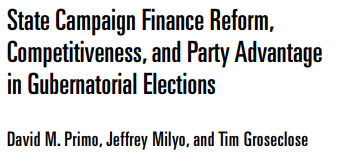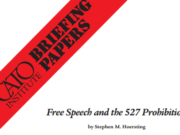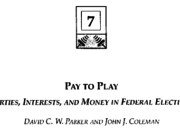Despite the attention given to electoral competitiveness and campaign money, little is known about the impact of campaign finance laws on electoral outcomes. In this paper, the authors estimate thenet effect of campaign finance laws on competitiveness and party advantage in gubernatorial elections. For the most part, they find that only limits on individual contributions to candidates have statistically and substantively significant effects on the winning margins in gubernatorial races, narrowing such margins. However, these effects are not driven by an impact on close races. In contrast, limits on organizational contributions and public financing regimes have small but statistically insignificant effects on winning vote margins. Finally, they also examine whether state campaign finance reforms confer any electoral advantage to one party over the other, and we find that campaign finance laws have no effect on party advantage in gubernatorial races. In the discussion section, they address the implications of these findings for future reform efforts.
State Campaign Finance Reform, Competitiveness, and Party Advantage in Gubernatorial Elections
April 1, 2006 • By IFS staff • Academic Research • Contribution Limits, Political Parties, Political Spending














